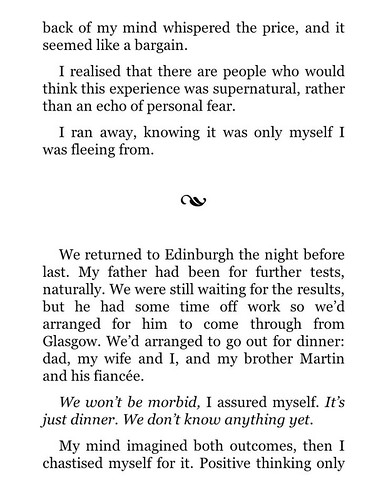
Like the literary fragment, the short story is prone to snap and to confound readers’ expectations, to delight in its own incompleteness, and to resist definition. This decision has been influenced by the argument that underwrites the study, namely, that the making of the short story is central to an understanding of modern literature and that the short story can be best understood as a type of fragment. Equally, other writers, too often overlooked by the narrow focus of short story theory, receive greater prominence. There are regrettable omissions – some of which I allude to in the text – while some notable writers are reduced to passing comment. Consequently, although I have strived for inclusion, I have not sought to be comprehensive. To achieve this aim, the book is structured in twenty chapters that work thematically rather than chronologically. First, it introduces the development of the international short story from its folktale origins to the present day, and second, it relates the short story to cultural debates that will also introduce the reader to areas of critical and theoretical discussion. The aim of this new introduction is two-fold. 163 Donald Barthelme, ‘The Flight of Pigeons from the Palace’, in Forty Stories (New York: Penguin, 1989), p.

Oscar Zarate (London: Serpent’s Tail, 1996), p. Iain Sinclair and Dave McKean, ‘The Griffin’s Egg’, in It’s Dark in London, ed. Copyright permissions: I would like to thank the Estate of Donald Barthelme for allowing me to reprint an illustration from Donald Barthelme’s ‘The Flight of Pigeons from the Palace’ in Forty Stories (1989), and Iain Sinclair for permitting me to reprint a page from his story, ‘The Griffin’s Egg’ (1996). This book is dedicated to the memories of Pamela Russell and Colin March. Lastly, I would like to thank the love and support of my far-flung family: John and Virginia in Oxford Brandon, Lucy and their children in Somerset Zahra in the Isle of Man and Isabella and Kirit in Canterbury.

I would also like to thank my many students in English, American and Comparative Literature for partaking (suffering?) seminars in tales, short stories and popular fictions. Ballard conference at the University of East Anglia in 2007: I am grateful to the organiser, Jeannette Baxter. Part of Chapter 10 was presented in a different form at the J. I remain grateful for the continued support of my PhD examiner Robert Hampson, while I am also indebted to timely conversations with Ailsa Cox and Toby Litt.

Past and present colleagues at the University of Kent have aided me with advice, encouragement, insights and the loan of books, among them Maggie Awadalla, David Ayers, Jennifer Ballantine-Perera, David Blair, Keith Carabine, Agnès Cardinal, Stefania Ciocia, Patricia Debney, Brian Dillon, Alex Dolby, Rob Duggan, Lyn Innes, Julian Preece, Dave Reason, Caroline Rooney, Elizabeth Schächter, Martin Scofield, Florian Stadtler, David Stirrup, Scarlett Thomas and Sue Wicks. I would also like to thank the anonymous readers whose comments helped me to reshape the original proposal. I would first of all like to thank the editorial team at Edinburgh University Press, in particular the commissioning editor Jackie Jones, for their help and enthusiasm. Henry and the Well-Made Story Economies of Scale: The Short Story in England Brought to Book: The Anthology and Its Uses Between the Lines: Dissidence and the Short Story Enclosed Readings: The Short Story and the Academy Modernism and the Short Story The Short Story Cycle Character Parts: Identity in the Short Story Localities: Centres and Margins Tales of the City Romance and the Fragment Ghost Stories and Other Hauntings Popular Short Fictions The Experimental Text Postmodernism and the Short Story Minimalism/Dirty Realism/Hyperrealism Voyages Out: The Postcolonial Short Storyġ 12 22 32 43 53 66 77 88 103 120 134 150 165 179 191 210 222 235 246 Origins: From Folk-Tale to Art-Tale Riddles, Hoaxes and Conundrums Memory, Modernity and Orality Poe, O. © Paul March-Russell, 2009 Edinburgh University Press Ltd 22 George Square, Edinburgh Typeset in Ehrhardt by Servis Filmsetting Ltd, Stockport, Cheshire, and printed and bound in Great Britain by CPI Antony Rowe, Chippenham and Eastbourne A CIP record for this book is available from the British Library ISBN 2773 8 (hardback) ISBN 2774 5 (paperback) The right of Paul March-Russell to be identified as author of this work has been asserted in accordance with the Copyright, Designs and Patents Act 1988.ġ 2 3 4 5 6 7 8 9 10 11 12 13 14 15 16 17 18 19 20 T H E S H O RT S TO RY A N I N T RO D U C T I O N


 0 kommentar(er)
0 kommentar(er)
